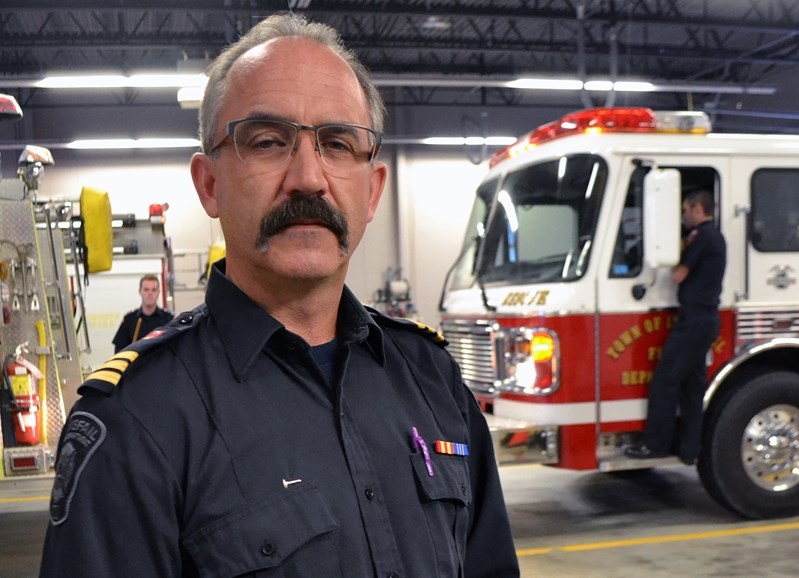INNISFAIL - Town council has approved a new cost-conscious remuneration policy for its firefighters.
The new policy, which takes effect Jan. 1, is based on an administration report showing escalating fire department budgets over the past decade, with honorarium expenses significantly higher in Innisfail than in any other regional fire department.
“We do recognize that we have a dedicated and very knowledgeable fire department in town, but at the rates or call-outs we are doing it is no longer sustainable in our budget,” said Mayor Brian Spiller during council's regular meeting on Dec. 12 when the new policy was approved. “Hopefully this works. If it doesn't work, I am sure through our new manager of protective services we will hear about it.”
However, firefighters were caught off guard by the new policy, claiming they were not told it was coming until 9 p.m. the previous night.
“It was not brought to the membership. There was no discussion,” said Tim Ainscough, the fire department's assistant deputy chief of training, who insisted there were “inaccuracies” with some of the administration information brought to council, which he added would be studied further by firefighters. “In the past council and administration have been accused of not communicating with affected parties and unfortunately this may be another one of those examples.”
However, Spiller immediately told Ainscough that if firefighters had any issues with the new policy their best way to deal with it was to follow the correct “chain of command.
“The right chain of command in this town would be for you guys to review that and discuss that with your manager. Your manager will bring it forth to the CAO, and the CAO will bring it to council,” said Spiller. “The council here is not open to all departments, coming to us, talking to us. You have to follow the chain of command, and that is the chain of command we prefer here.”
The report to council, presented by Helen Dietz, the town's chief administrative officer, noted the fire department's annual operating budget increased over the last 10 years from $155,000 to $481,332, not including capital or truck replacements. The report also stated 75 per cent of the current operating budget is allocated for firefighters' honorariums and training, the latter creating a budgetary increase since 2015 when the department doubled training sessions from twice a month to four.
Council heard the training budget increased from $12,000 in 2014 to $50,000, with the latter amount “overspent” to $60,000 in 2016. The report, which compared honorariums with several other regional fire departments, concluded the Innisfail Fire Department is the highest hourly paid department in the region, and the only one paying a three-hour minimum.
“The current practice of allocating additional funding each year to address annual budget overruns is not a financially sustainable solution,” said Dietz in her report, adding the fire department's current financial funding model is also not sustainable. “Honorariums need to align with other municipality compensations and pay needs to reflect actual hours worked as outlined in the new policy.”
The new policy for Innisfail firefighters is dropping the three-hour minimum and will compensate for actual hours worked, with a one-hour minimum and in 15-minute increments for partial hours over the one-hour minimum.
While the fire department's overall budget remains unchanged, any savings from the new remuneration policy will go towards public education initiatives, firefighters' inspections and the purchase of new equipment and vehicles.
However, Ainscough countered that in 2011 the fire department remuneration policy was amended to transition firefighters from an honorarium to an hourly rate that included a minimum three hours of call- out pay, which was in line with provincial employment standards regulations.
“The financial impact to the members isn't going to be significant. We are not in it for the money,” said Ainscough. “If anyone thinks we risk our lives running into burning buildings or standing out on Highway 2 when it's 30 below out for $5,000 or $6,000 a year, that is not why we do it. But it is kind of a slap in the face that council and administration feel that we are overpaid for what we do.”
Tim Ainscough, Innisfail Fire Department's assistant deputy chief of training
"It was not brought to the membership. There was no discussion. In the past council and administration have been accused of not communicating with affected parties and unfortunately this may be another one of those examples."



